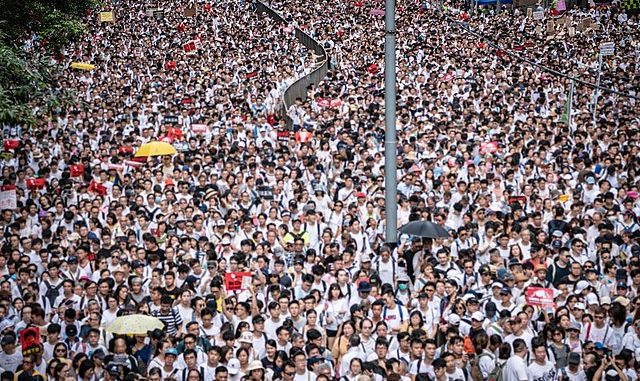
Since March, Hong Kong has been rocked by mass demonstrations. The protesters opposed a bill that would allow people in Hong Kong to be sent to mainland China for trial. Hong Kongers feared that the Chinese government would use the law to target and imprison activists who oppose the current regime. On September 4, the Hong Kong government was forced to withdraw the bill because of intense public pressure through organized protests all over the island.
Almost a third of the population has been on the streets. What started as protests to withdraw the extradition bill has since broadened to include other demands. Demonstrators want amnesty, as hundreds of protesters have been arrested and face up to 10 years in jail. Other demands include an investigation into police brutality, free and fair elections, and freedom from political interference from mainland China.
Hong Kong is a former British colony that was ceded back to the People’s Republic of China in 1997. But it is supposed to enjoy a special status until 2047, which gives it some political autonomy. Its population wants to protect this autonomy against the ferocious dictatorship in China. Hong Kong is also one of the world’s major financial markets, with plentiful profits for speculators and investors. The territory and its skyscrapers house a population whose standard of living is one of the highest in the world for those at the top.
But Hong Kong is not only made up of the wealthy elite. The demonstrators and strikers are mostly government employees, employees of private companies, workers in the services or transportation, and high school and university students. They are the ones who are threatened with the loss of their democratic rights. They are right to defend them tooth and nail, even if this democracy has its limits!
The Beijing Authorities and the Hong Kong Government have worked together to suppress the protest movement. The Chinese government has threatened the demonstrators, called them “rioters” who commit “terrorist acts”, and deployed 5,000 troops to Shenzhen, a Chinese city less than ten kilometers away from Hong Kong. For now, both governments are content to flex their military power and hope the demonstrations fizzle out. But the threat of a crackdown similar to that of the Chinese army against students and workers in Tiananmen Square in 1989 is certainly possible.
The Hong Kong government and its police force haven’t hesitated to beat, wound, blind, and imprison the protestors. Police have used tear gas, pepper spray, batons, and rubber bullets on the demonstrators, wounding over a thousand people. One woman was hit in the face with a “police projectile” and might lose her eye. Other women have stepped forward to speak out against sexual harassment and assaults at the hands of the police.
As long as the international financial center of Hong Kong remains stable, repression or not, Trump and his good friends in the richest countries will not get involved. Trump even tweeted that Xi Jinping, the President of China, is “a good man in a tough business”. The U.S. rulers, like those in China, are only concerned with their profits, not with the problems faced by ordinary people in Hong Kong.
The people of Hong Kong have shown their fierce determination over months of struggle. They have begun to understand their organized power and their ability to use it to win what they want and need. They have already forced the government to back down, and they show no signs of giving up.
Featured image source, licensed under CC-BY-SA 4.0 by Hf9631

